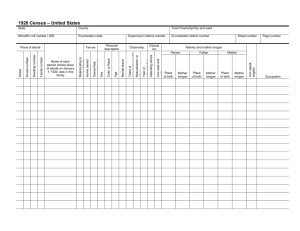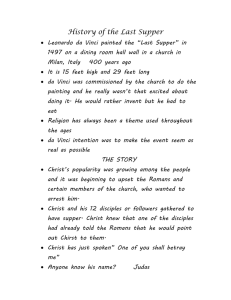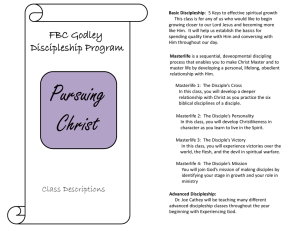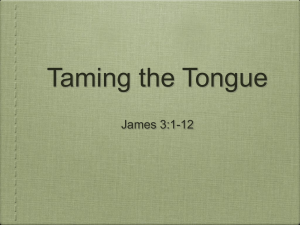March 16, 2012- Words Spoken in Haste
advertisement
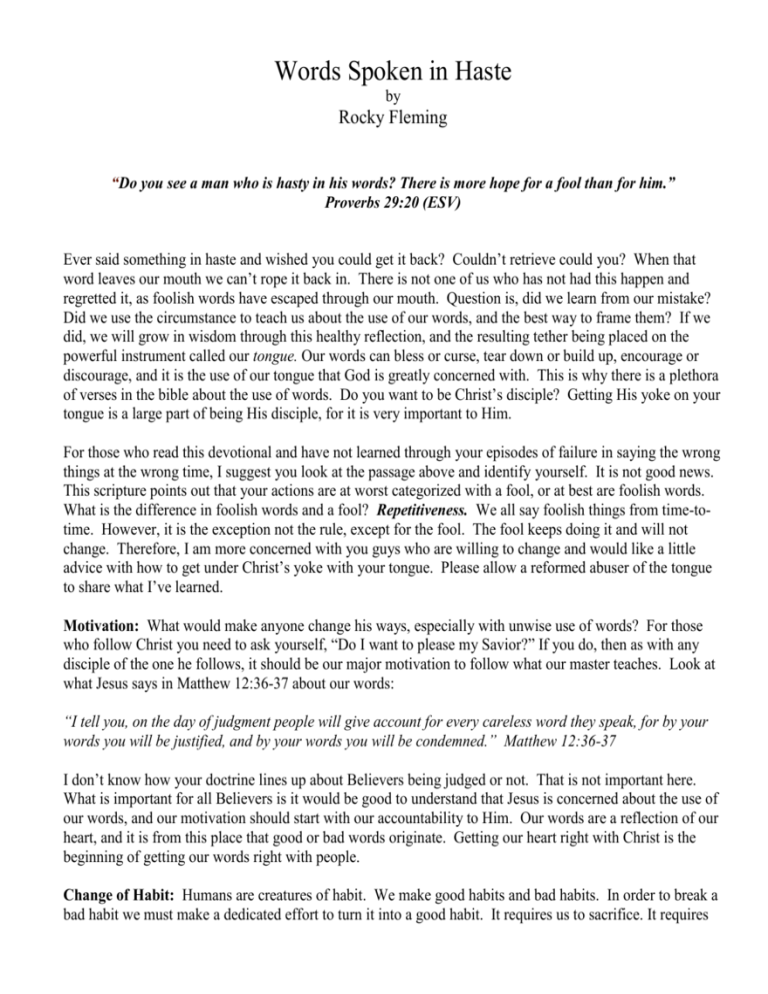
Words Spoken in Haste by Rocky Fleming “Do you see a man who is hasty in his words? There is more hope for a fool than for him.” Proverbs 29:20 (ESV) Ever said something in haste and wished you could get it back? Couldn’t retrieve could you? When that word leaves our mouth we can’t rope it back in. There is not one of us who has not had this happen and regretted it, as foolish words have escaped through our mouth. Question is, did we learn from our mistake? Did we use the circumstance to teach us about the use of our words, and the best way to frame them? If we did, we will grow in wisdom through this healthy reflection, and the resulting tether being placed on the powerful instrument called our tongue. Our words can bless or curse, tear down or build up, encourage or discourage, and it is the use of our tongue that God is greatly concerned with. This is why there is a plethora of verses in the bible about the use of words. Do you want to be Christ’s disciple? Getting His yoke on your tongue is a large part of being His disciple, for it is very important to Him. For those who read this devotional and have not learned through your episodes of failure in saying the wrong things at the wrong time, I suggest you look at the passage above and identify yourself. It is not good news. This scripture points out that your actions are at worst categorized with a fool, or at best are foolish words. What is the difference in foolish words and a fool? Repetitiveness. We all say foolish things from time-totime. However, it is the exception not the rule, except for the fool. The fool keeps doing it and will not change. Therefore, I am more concerned with you guys who are willing to change and would like a little advice with how to get under Christ’s yoke with your tongue. Please allow a reformed abuser of the tongue to share what I’ve learned. Motivation: What would make anyone change his ways, especially with unwise use of words? For those who follow Christ you need to ask yourself, “Do I want to please my Savior?” If you do, then as with any disciple of the one he follows, it should be our major motivation to follow what our master teaches. Look at what Jesus says in Matthew 12:36-37 about our words: “I tell you, on the day of judgment people will give account for every careless word they speak, for by your words you will be justified, and by your words you will be condemned.” Matthew 12:36-37 I don’t know how your doctrine lines up about Believers being judged or not. That is not important here. What is important for all Believers is it would be good to understand that Jesus is concerned about the use of our words, and our motivation should start with our accountability to Him. Our words are a reflection of our heart, and it is from this place that good or bad words originate. Getting our heart right with Christ is the beginning of getting our words right with people. Change of Habit: Humans are creatures of habit. We make good habits and bad habits. In order to break a bad habit we must make a dedicated effort to turn it into a good habit. It requires us to sacrifice. It requires us to go from what comes easy for us to that which is hard. One of the hardest things we can do to break a nasty habit with the use of our tongue is to turn from our pride to humility. To do this when our words have offended someone, we must take ownership of our problem and ask for forgiveness of the one we have offended. It might be our wife, our children, a co-worker or even an enemy. The process will be the same. We will have to swallow our pride, get the big picture of pleasing God, and wade in with words of recognition that we were wrong and then ask for forgiveness. When we do this Jesus smiles by our progress toward getting our tongue under His yoke. We turn a bad habit with the use of our tongue around by taking some painful measures. But, it will lead us closer to Christ in the process. Conditions at Work: I worked in the insurance industry for 40 years. This industry has some very good people in it, as well some scoundrels. What is consistent with both groups is the sense of urgency required to succeed in the business. As with most sectors in the marketplace, a disciple of Christ will be tested by tight schedules, deadlines, uninformed people, misinformed people, and lazy people. It is a powder keg waiting for a spark. For those who do not care, they will say foolish things and get the expected results by wounding co-workers. When they go home they will wound their wives and children, for that is how foolish people deal with challenges by other people. I know first hand how the destructiveness of my tongue has hurt and discouraged co-workers, friends, and family at times. But, I also know the healing that simply asking for their forgiveness can be. Even though I have been away from the business a long time, and especially from reacting with hurtful words, I still find myself seeing someone from my past and asking for their forgiveness. Why do I do this? Go back to my motivation. It is an unresolved issue that needs to be addressed, and I know it pleases my King to bring about reconciliation with a wounded relationship if I can. Dealing With the Abrupt: There is another practice I have found essential in the disciple’s life for limiting foolish words. It is to stop and pray. Ask God to calm you. Ask Him to give you His wisdom before you speak. Ask Him to interrupt your processing of problem solving if He sees you getting off course with what you are about to say, write or how you will respond to a situation. Only this morning God interrupted some words I was about to fire off to one of our contract labor persons. I had asked God before writing this “fiery letter” to interrupt it if I was not seeing something relevant. I had come to the end of a long time of patiently waiting for corrections to be made to our problems. Before sending the letter God sent me a friend to give me some insight I had not known, and it in turn caused me to calm my letter down. God was faithful to keep my words safe because I asked that He would. I also had to back away and see the interruption as a redirection from God. As a disciple of Christ, we should practice acting rather than reacting. In the economy of words and responses, there is no better word that we can give than angry words that have been paused by prayer, changed by God’s perspective, and couched with His grace. Sure, we might have to say some things that can be painful. We are not exempt from that responsibility. But, with Christ, we will say the right things, and that is what a disciple of Christ strives to do.

